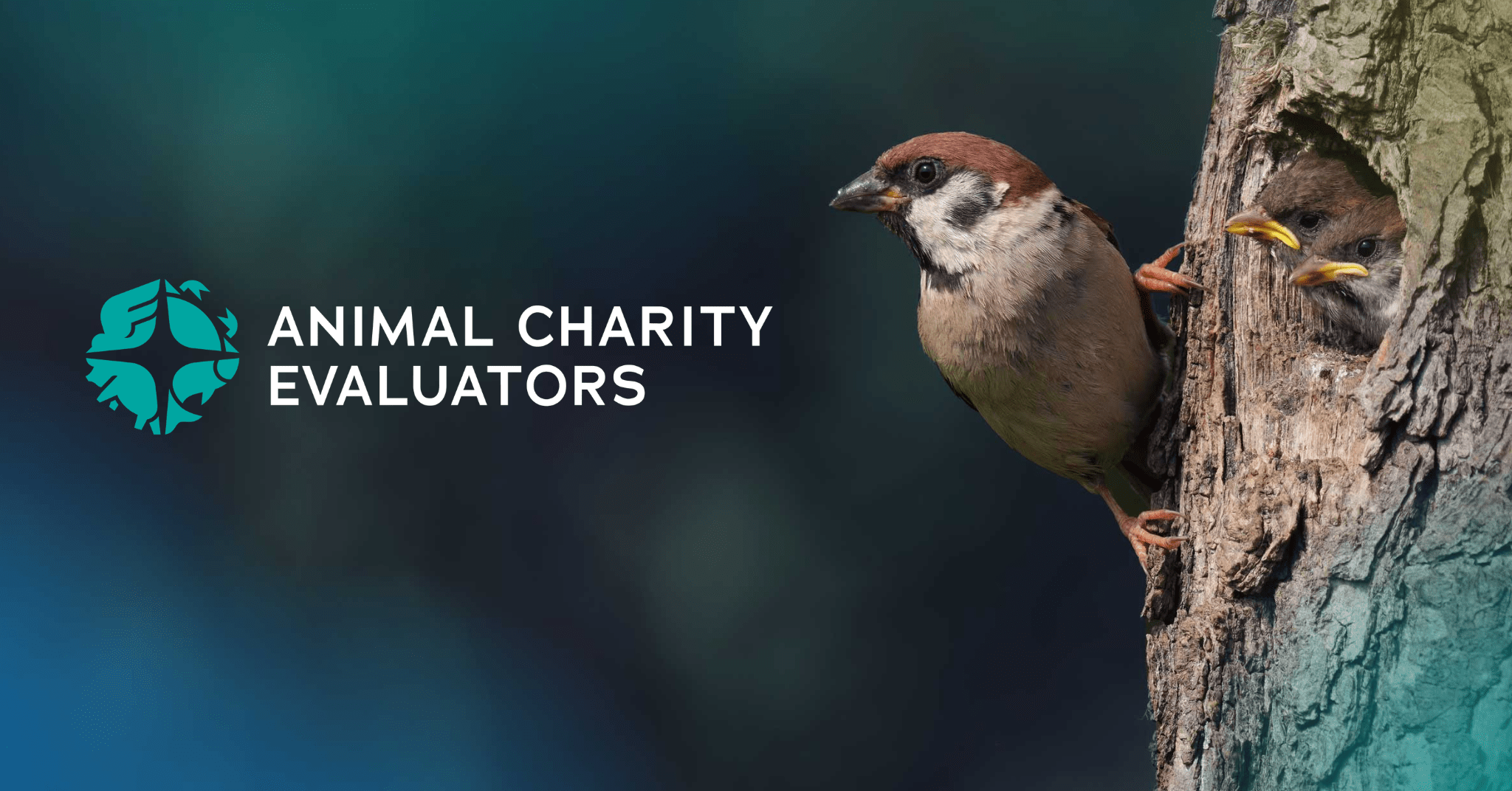Hi! We're researchers from Animal Charity Evaluators (ACE), and for the next two hours, we'll be answering questions about our 2024 charity recommendations and our charity evaluations process.
Our team answering questions is:
- Elisabeth Ormandy, Programs Director
- Vince Mak, Charity Evaluations Manager
- Maria Salazar, Senior Researcher
- Max Taylor, Researcher
- Zuzana Sperlova, Researcher
How to participate? Make sure you've created a FAST Forum account and post your questions in the comments section.
We look forward to answering your questions!
For a limited time, all donations to our Recommended Charity Fund will be matched! Your support will help all 11 of our Recommended Charities that we estimate will have an exceptional impact for animals with additional donations. Thank you for your support and for caring about creating a kind world for animals.




Thank you for your question. We refine our methods each year and we don’t think that recent changes mean that we can no longer rely on the decisions we made in 2023.
Specifically about cost-effectiveness, in the past ACE has identified limitations of direct cost-effectiveness analyses and found it less helpful to directly estimate the number of animals helped per dollar. Instead, we began exploring ways to model cost-effectiveness, such as achievement scores and the Impact Potential criterion. Since then, the animal advocacy movement (namely Welfare Footprint Project, Ambitious Impact, and Rethink Priorities) has invested in research that enables quantifying animal suffering averted per dollar and in turn, we’ve evolved our methods. However, we think it is still remarkably challenging to do these calculations and draw conclusions from them, and that using proxies is still a reasonable approach.
Additionally, while we’ve introduced a theory of change criterion to formalize our assessment of charities’ assumptions, limitations, and risks, we have already been taking these factors into account during our decision-making in the past. Our other two criteria, room for more funding and organizational health, were included in our methods in both years.
In summary, while we see recent improvements as a step forward, we wouldn’t claim that 2023 charities were evaluated with a less rigorous methodology.
— Zuzana